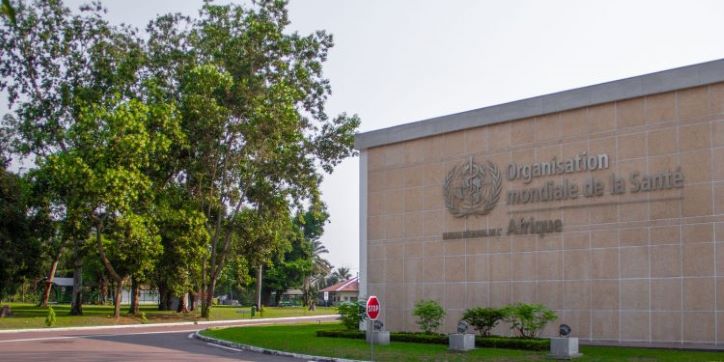Brazzaville, 24 August 2021 – African health ministers met today to take stock of the continent’s fight against COVID-19 as the pandemic continues to stretch health systems to breaking point in some countries and just 2% of all Africans are fully vaccinated against the virus, says the World Health Organization (WHO).
Ministers assessed immediate actions needed to curb Africa’s third wave, which saw COVID-19 cases in Africa surpass 7 million, reach a record weekly peak of over 250 000 in early July and drive up deaths to a record weekly peak of over 6400 in early August.
The third wave has declined over the last five weeks since the peak in early July, but 16 countries are still experiencing a surge in new cases.
The special online session aimed to brief ministers on the state of COVID-19 across the World Health Organization (WHO) African Region, share approaches in tackling the pandemic and discuss how African countries can learn from COVID-19 and build more sustainable systems to prevent, detect and respond to future health emergencies.
“It is only together that the world can rise to the challenge of ending the COVID-19 pandemic… [In Côte d’Ivoire] Abidjan is the epicentre and our country is making every effort to contain it. The number of deaths rose significantly in recent days, showing that this latest wave will have higher consequences in terms of mortality,” said Hon Pierre N’gou Dimba, Minister of Health, Public Hygiene and Universal Health Coverage of Cote d’Ivoire, who was speaking on behalf of H.E. Dr Alassane Ouattara, President of Cote d’Ivoire in a keynote address.
The session included three ‘deep dives’ that paired health ministers with key partners to delve into specific, pressing topics that were bookended by high-level presentations and remarks. Themes discussed included holistic public health approaches to control Africa’s third wave, the future of emergency response in Africa and building trust in communities to boost the uptake of COVID-19 vaccines. Virtual ‘fireside chats’ allowed for open, strategic analysis and wide-ranging discussions.
“Africa has shown leadership, determination and fortitude and I commend the swift action and tough decisions taken by African governments, particularly early on in the pandemic. We must build on this renewed unity of purpose to strengthen our surveillance systems, bolster treatment capacities, step up the supply of crucial medicines and swiftly vaccinate those most in need. COVID-19 has been a ruthless reminder that we must invest in our health systems for the health, security and prosperity of all Africans,” said Dr Matshidiso Moeti, WHO Regional Director for Africa.
The ministers met for the special session at the Seventy-first session of the WHO Regional Committee for Africa—the Organization’s decision-making body—that comprises Ministers of Health from the 47 Member States of the WHO African Region as well as key partners.
“The United States Government is committed to increasing global COVID-19 vaccination coverage by helping fund relief efforts and by donating vaccines. We encourage other countries with access to vaccine supply also to share their supply,” said Dr Anthony Fauci, Director, United States National Institute of Allergy and Infectious Diseases (NIAID), during a session on boosting demand for COVID-19 vaccines in communities. “To date, the United States has donated and shipped more than 110 million doses of COVID-19 vaccines, which have reached over 60 countries, including over 18 million doses donated to countries in Africa.”
WHO has supported African countries since the outset of the pandemic, sharing crucial supplies, including nearly 5500 life-saving oxygen concentrators, deploying emergency teams to 15 countries, training 200 000 health workers, working with communities to stem the spread of the virus and sharing crucial guidance. WHO is at the forefront of Africa’s COVID-19 vaccine rollout, helping coordinate partner efforts, giving vital guidance and tailored support to countries.
The Regional Committee is the highest decision-making body on health in the region. It meets once a year to review critical health issues affecting Africa and to advise on appropriate strategies to improve health outcomes.

